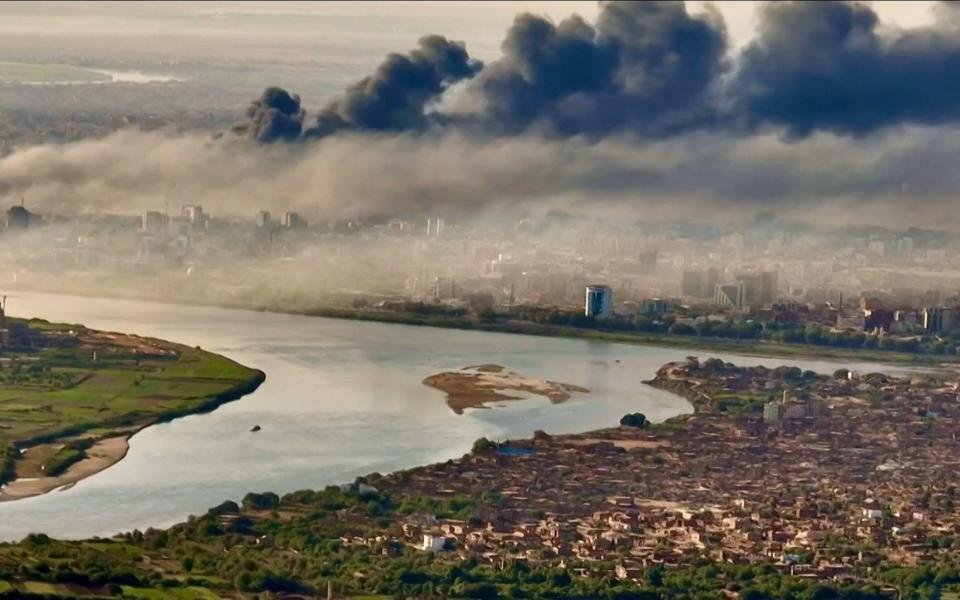US sends military to prepare for Sudan evacuation

The US was moving military assets to a Naval base in the tiny Gulf of Aden nation of Djibouti to prepare for the possible evacuation of US Embassy personnel from Sudan.
Two Biden administration officials said the deployments were necessary as fighting rages between two warring factions.
In a statement on Thursday, the Pentagon said it will deploy “additional capabilities” to the region to potentially help facilitate an evacuation of embassy personnel from Sudan if required, but provided no details, and did not state the location.
Security conditions in Khartoum and elsewhere have thus far prevented the State Department from implementing a so-called “ordered departure,” a move that would require staffers to leave the country.
It came as the head of Sudan’s military has ruled out negotiations with the powerful paramilitary it is battling for control of the country instead calling for the surrender of the Rapid Support Forces.
'No option but the miltary solution'
“There is no other option but the military solution,” General Abdel Fattah al-Burhan said on Thursday, adding that he saw no partner for negotiations.
He accused the RSF of “closing roads and preventing the free movement of people” in many regions. “A real truce cannot be implemented in these conditions,” he added.
General Mohamed Hamdan Dagalo, the RSF leader, commonly known as Hemedti, offered a truce for the Muslim holiday of Eid, which starts on Thursday, but said he would not sit with Gen Burhan, whom he called a criminal.
Fighting between the rival generals erupted on Saturday after talks on handing power to a civilian government broke down.
A second 24-hour ceasefire declared on Wednesday evening was also broken within minutes in many parts of the capital Khartoum, residents said.
“The shelling hasn’t stopped in the areas of conflict in Khartoum,” Tagreed Abdin, a Sudanese architect living in the capital, told AFP.
A durable ceasefire was becoming increasingly critical to allow civilians to evacuate and resupply, said Elsadig Elnour, the country director of the Islamic Relief Charity.
“I really hope they extend this ceasefire for Eid, so at least if the people want to leave Kharhtoum they can,” Mr Elnour told The Telegraph, speaking via telephone from Khartoum.
'There are no safe routes now'
After six days of fighting supplies were running low for many residents trapped in their homes, he said. “Water was cut off almost five days ago so people can’t find clean water or food.”
With shops, pharmacies and banks closed, getting supplies was difficult, particularly while the streets remain dangerous. “There are no safe routes now, you cannot guarantee that if you go out you will not be shot,” he said.
At least 330 people have been killed and 3,300 wounded in the fighting since it began on Saturday, the UN’s World Health Organisation said.
But the toll is likely higher, Mr Elsadig believed. “There are bodies lying in the streets,” he said.
Huge numbers of people have already left Khartoum for safer areas, he said.
“The insecurity is extreme, it is highly risky,” he said. “Where I am sleeping with my family there is shooting, shelling, and air strikes.”

 Yahoo Sports
Yahoo Sports 